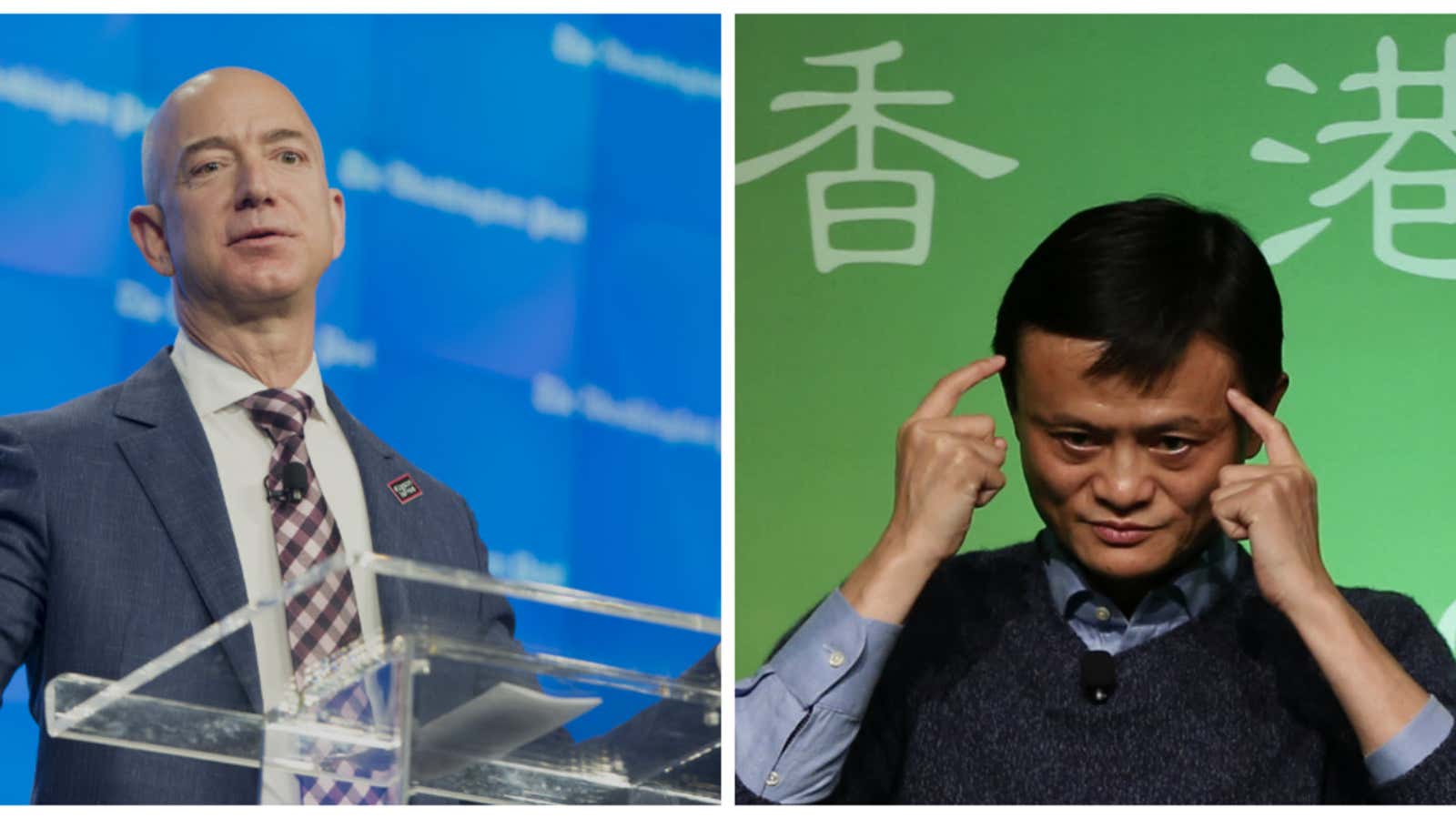It looks like Amazon and Alibaba will do whatever it takes to win in India.
After battling it out in the online consumer retail space for several years now, the two companies are all set to compete for the country’s Rs19.13 lakh crore ($287 billion) business-to-business (B2B) e-commerce segment.
Jeff Bezos-led Amazon has infused Rs115 crore into its wholesale business in India, The Economic Times newspaper reported today (Sept. 27) quoting regulatory filings.
Amazon’s wholesale arm, Amazon Wholesale (India), was set up in 2013 and runs the company’s B2B portal, amazonbusiness.in. The portal caters to small offices, department stores, kirana stores, drugstores, clinics, hospitals, hotels, and restaurants. The service is currently available only in Bengaluru and Mangaluru in the southern Indian state of Karnataka. In all, including the latest investment, Amazon has invested a total of Rs155 crore in its India wholesale unit.
Amazon’s announcement comes just days after Alibaba.com—the B2B platform for China’s Alibaba Group—said it had signed up new partners in India to ensure better and cheaper services for its sellers. The portal, which focusses on cross-border wholesale trade, has been operating in India since 2007 and has over six million registered Indian buyers and sellers.
Alibaba.com’s new partners in India include Kotak Mahindra Bank, IDFC Bank, logistics startup Delhivery, DHL, and Aditya Birla Finance. These partners will provide banking, transactional, lending, international logistics, and domestic courier services to Alibaba.com’s members on priority and at special pricing.
For several years now, Amazon and Alibaba have been competing for a share of Indian business-to-consumer (B2C) e-commerce, albeit indirectly. While Amazon operates its India business directly through Amazon.in, Alibaba Group holds significant stakes in two of the leading online retail portals in India, Snapdeal and Paytm.
But the B2B battle could be far more fierce given the high stakes.
For one, India’s B2B online retail market is estimated to grow by 2.5 times to Rs45 lakh crore by 2020. In comparison, B2C e-commerce is estimated to be only around Rs1.86 lakh crore by 2020. Also, B2B e-commerce is more lucrative (pdf) because it does not require heavy discounting, and sales volumes are much larger.
